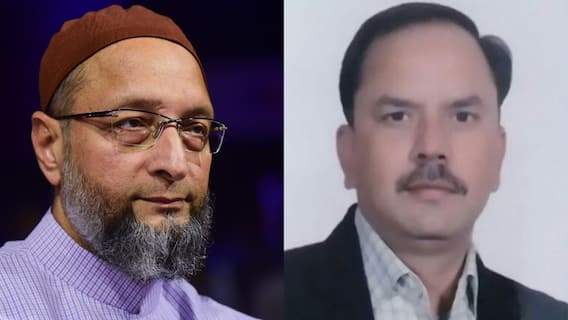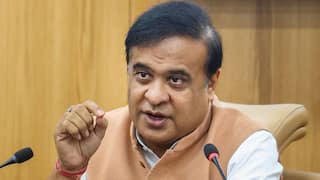Why Tension Between Pakistan And Afghanistan Over TTP Could Be 'Dangerous' For India
Neighbourhood Watch: New Delhi believes the growing acrimony between Islamabad and Kabul over TTP, or Pakistani Taliban, will once again give rise to a 'hotbed of terrorism' in the region.

New Delhi: India believes that the growing tensions between Pakistan and Afghanistan over Tehreek-i-Taliban Pakistan (TTP), or Pakistani Taliban, coupled with a near-collapsed economy of both countries, will prove to be “dangerous” for New Delhi, reactivating the “hotbeds of terrorism” in the region, top-level officials told ABP Live.
As New Delhi is watching patiently the unravelling of deep-rooted tensions between Islamabad and Kabul over the TTP ever since the Taliban takeover of Kabul in August 2021, India is of the strong view that if the issue is not addressed, terror outfits working against it will begin to strengthen itself “again”, an official involved in India’s national security apparatus told ABP Live.
The source also said this is the reason why India had to put its weight against the adoption of UNSC Resolution 2593 (2021) on Afghanistan within days of Kabul falling to the Taliban, when New Delhi obtained the presidency of the UN Security Council (UNSC) for a period of one month.
READ | Why India-China Ties May Plummet Further In 2023 With Security Taking Priority
Former Pakistan prime minister Imran Khan Tuesday said if Pakistan and Afghanistan does not maintain a cooperative bilateral relationship then it will prove to be a failure for Islamabad’s counterterrorism efforts even as it will get dragged into a “disastrous forever war”.
Khan also called the government of current PM Shehbaz Sharif “dangerously irresponsible” for causing rifts with the interim Taliban government in Kabul over TTP’s threats, instead of holding a dialogue with them.
Earlier this month, tensions between Islamabad and Kabul peaked when Pakistan threatened to attack the TTP hideouts inside the territory of Afghanistan if the interim Taliban government failed to take action, which the Shahbaz Sharif government sought to downplay later.
Pakistan’s Interior Minister Rana Sanaullah said in a televised interview: “Afghanistan is our brotherly country and we will first talk to them to dismantle the TTP hideouts and hand over the group’s members to Pakistan.”
But by then the damage was already done.
Sanaullah was forced to clear his position and downplay the matter because his earlier remarks made in late December 2022, regarding carrying out attacks inside Afghanistan, irked the Taliban government to the extent that they reminded Pakistan of their embarrassing surrender during the 1974 Bangladesh War.
On December 30, 2022, Pakistan’s top decision making body on security and foreign policy matters, National Security Committee (NSC) said “terrorists are enemies” and decided to respond with “full force” against them.
Since the takeover of Afghanistan by Taliban in August 2021, Pakistan has seen a sudden rise in terrorist activities in Pakistan, particularly in Khyber Pakhtunkhwa and Balochistan region, that have been purportedly carried out by the TTP leaders based in Afghanistan.
'India Should Not Put All Eggs In One Basket'
Rakesh Sood, former Indian envoy to Afghanistan, said: “This was expected and a matter of time before things began to unravel because after all there is little difference in the ideologies between the Taliban and the other terrorist groups like the TTP. Pakistan, the US and Russia have all deluded themselves all these years that the Taliban has a limited agenda in the region and globally. But we have seen time and again that that’s not true.”
He added: “The terrorist outfits are all there inside Afghanistan, because they find it convenient there and have convergence there. One of the main demands of the TTP is that ‘Sharia law’ is followed, whereas the Pakistani army is hardening their position and they want them to work within the framework of Pakistan’s Constitution. So according to the Pakistani army TTP’s demands are illegal and thus they look at them as terrorists. And there lies the contradiction.”
According to Sood, the "anti-India groups" are fully operational there and they will also have demands vis-à-vis India such as Lashkar-e-Taiba (LeT) and Jaish-e-Mohamed among others, which will “continue to exist in Afghanistan as they share the same ideology as the Taliban… There is no guarantee that they will not undertake any attacks against India.”
He cautioned that India should continue taking "contradictory positions" and not "put all eggs in one basket".
Michael Kugelman, Deputy Director of the Asia Program and Senior Associate for South Asia at the Washington-based Wilson Center, said: “India certainly won’t be disappointed if Pakistan is getting bogged down on its western border, and there may well be some schadenfreude in New Delhi given how Pakistan is now facing the same type of cross border terror threat that India and Afghanistan have suffered from in the past, thanks to Pakistan’s policies.”
However, Kugelman added, the rising Afghanistan-Pakistan tensions could become "problematic for New Delhi if they lead to violence and Pakistani military takes action in Afghanistan".
"Pakistani military force would not only upset the Taliban but also enrage the TTP and IS-K. New Delhi is concerned enough about the security environment in Afghanistan as it quietly staffs its embassy in Kabul. The likely increased instability produced by Pakistani military action would add to New Delhi’s security concerns in Afghanistan,” he said.
ALSO READ | Should India Be Worried About The Comeback Of Communist Government In Nepal?
'Tensions Between Taliban And Pakistan Are Real And Rising'
The growing threat of TTP will create troubles for the US too, which believes this will give more leeway to al-Qaeda and ISIS.
According to Kugelman, “While both sides (Pakistan and Afghanistan) have sought to publicly underplay the problems, let’s be clear that tensions between the Taliban and Pakistan are real and rising." He said the Taliban are keen to assert their independence from "a Pakistani patron that they no longer need to rely on for help, given that the war in Afghanistan has ended, for now”.
Kugelman also said this is the reason why the Taliban has resisted all efforts by Pakistan to fence the 2,700-km border between them, known as the ‘Durand Line’, which Afghanistan rejects.
Last month, owing to a major firing incident along the Durand Line, Pakistan summoned Afghan Chargé d’Affaires in Islamabad condemning the incident.
Meanwhile, the TTP chief Mufti Noor Wali Mehsood has said it is “still open” to holding talks for a ceasefire agreement with the Pakistan government.
A former RAW officer, who has worked in Afghanistan but refused to be identified, told ABP Live that the Taliban has no means or the intention to fight the TTP as it considers the outfit as “one of its own”.
“Hence, Pakistan will have no option to take either the help of the US or the Saudis to address the situation and ultimately will have to sit for peace talks with the Taliban regime in Kaul,” the former intelligence official added.
On the other hand, making matters worse, the US has given tacit support to Pakistan.
According to US State Department spokesperson Ned Price, “Pakistan will do what’s in its self-interest and it will take action when it deems appropriate based on the inherent right of self-defence … Pakistan has every right to defend itself.”
Apart from the much controversial $450 million package to Pakistan for the F-16 programme and helping Pakistan in its counterterrorism efforts, Washington has also given $60 million separately to Islamabad in 2022 for “generously hosting Afghan refugees for more than four decades”.
Arash Yaqin, National Security Analyst at Washington-based Institute of World Politics, said, "Although the current tensions between the Taliban and Pakistan might temporarily serve Indian interests and create an opportunity for a closer relationship between India and the Taliban. However, the theory of the enemy of my enemy is my friend does not work."
Yaqin, who’s also a former US State Department official, said, "If the Taliban had to choose between India and Pakistan, they would still go with Islamabad since the Taliban is always looking for a safe haven if the situation goes south, like in 2001. In addition, the Taliban consider Kashmir as an independent state, another division between them and India. Last but not least, India is also keeping the door open for other groups to join or oppose the Taliban, so the Taliban does not trust the New Dehli."
What Is Tehreek-i-Taliban Pakistan Or TTP?
The TTP came into existence in 2007, following the US invasion of Afghanistan in 2001 in the aftermath of the 9/11 attacks. The group turned against the Pakistan state for supporting the US’ ‘War on Terror’ and began sheltering members of Afghan Taliban and al-Qaeda that were fleeing the war in Afghanistan. It was founded by then leader of the Taliban, Mullah Mohammed Omar, and wants to establish ‘Sharia Law’ in Pakistan just as what the Afghan Taliban wants to implement in Afghanistan.
“Ever since the Taliban’s takeover, the TTP has emphasized that the Afghan Taliban is not only a model insurgency, but also the mothership of their movement. TTP chief Noor Wali Mehsud has publicly reiterated his pledge of allegiance to Afghan Taliban leader Maulvi Hibatullah Akhundzada and claimed the TTP to be a branch of the Taliban in Pakistan. For their part, the Taliban are evasive on the current status and future of the TTP in Afghanistan and remain non-committal on a crackdown despite the group’s violence against Pakistan,” states a report by the United States Institute of Peace (USIP).
Trending News
Top Headlines






































